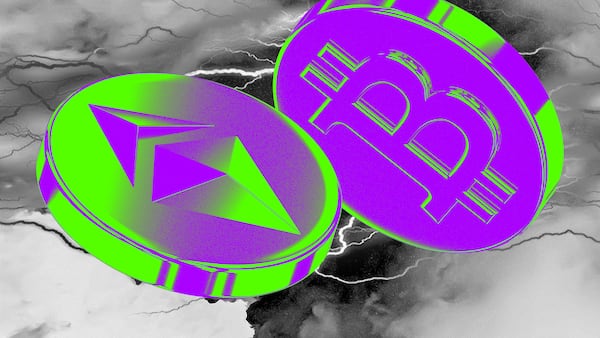- Sandwich bots are wreaking havoc on Solana.
- Users have turned to MEV infrastructure company Jito to help protect them.
- The Solana Foundation is taking a hard stance against those who maliciously target users' trades.
Solana’s memecoin frenzy and flurry of token airdrops has drawn in more users, pushing trading volume on the network to unprecedented levels in recent months.
But with the increased trading comes a big problem.
Those involved in running the software that helps process transactions have a greater incentive to run bots that rearrange transactions for profit — a practice known in crypto circles as MEV, or maximal extractable value.
One of the most common types of MEV is a sandwich attack. Bots conduct sandwich attacks by scanning Solana for users buying a token and then jump the queue and place a large order ahead of them, bumping up the token’s price.
After the victim’s trade is processed, increasing the price further, the bot sells the tokens for a new higher price.
“Sandwiching is tremendously profitable but terrible for users and the long-term success of the network,” Jito Network contributor Lucas Bruder told DL News. Jito is a Solana MEV infrastructure company.
Jito’s answer to sandwich bots is to charge users a small tip, at least around $0.04 per trade during normal network conditions, to process their transactions privately.
Once a user pays a small tip to Jito to execute their trade, their transaction is included in a private bundle that gets processed through a Jito validator. Validators are software instances that process transitions on Solana.
This means these malicious MEV bots won’t be able to see these transactions on the network before they are processed, protecting users from sandwich attacks.
Jito’s solution is proving popular. Over the past week, users have paid over $9.3 million worth of SOL in tips to protect their trades. And if Solana’s trading volume increases, Jito stands to make even more.
What is ‘good’ MEV?
Bruder said that in addition to individual users protecting their trades, part of Jito’s increased use is from arbitrage traders having more opportunities for profitable trades because of Solana’s increased trading volume.
“Arbitrage and other forms of MEV, such as DeFi liquidations, can be thought of as ‘good’ MEV in that they help maintain orderly and efficient markets,” Bruder said.
Arbitrage traders take advantage of price differences that arise between exchanges to make a small profit. Doing so helps keep prices accurate and ensures Solana users get fairer prices when trading.
Not a new problem
Sandwich bots are not unique to Solana. On Ethereum and other public blockchains, these bots routinely target users’ trades.
Users can switch to custom RPCs to avoid getting sandwiched. An RPC — or Remote Procedure Call — is a type of computer server that lets users send transactions to different blockchains.
But setting up a custom RPC can be difficult, especially for the average user. Jito’s solution is built into common trading venues such as the browser app for Jupiter Aggregator and several major wallets. For most users, paying a nominal fee is a more convenient and readily available way to avoid sandwich bots.
Combatting sandwich bots on Solana is also a more pressing issue than on other networks like Ethereum. That’s because bots can target a higher proportion of trades on Solana due to the network’s lower transaction fees.
The fact that much of Solana’s trading activity is for memecoins, assets that typically have low levels of liquidity, has only compounded the problem. Assets with low liquidity experience greater swings in price when traded, creating more opportunities for sandwich bots.
Additionally, Bruder said, the Solana community is attempting to come to a social consensus — a process where individuals come to agreement on a change that will be made to a blockchain — to avoid supporting those targeting users with sandwich attacks. “It’s revealed which actors are Solana-aligned and which are not,” he said.
Ousting bad actors
The situation is being taken seriously at the highest levels.
“Operators engaging in malicious activities such as… sandwich attack transactions or otherwise harming Solana users will not be tolerated,” Tim Garcia, a validator relations lead at the Solana Foundation, said in a Tuesday post in the Solana developers Discord — a messaging app.
The Solana Foundation, a nonprofit dedicated to the decentralisation, adoption, and security of Solana, runs a validator delegation programme. Those wanting to run validators can apply for assistance from the foundation to cover their costs and ensure they can run a validator profitably.
Garcia said validators that maliciously target trades will be “immediately and permanently removed” from the programme. “Enforcement action will begin within the next 24 hours,” he said.
Tim Craig is a DeFi Correspondent at DL News. Got a tip? Email him at tim@dlnews.com.







